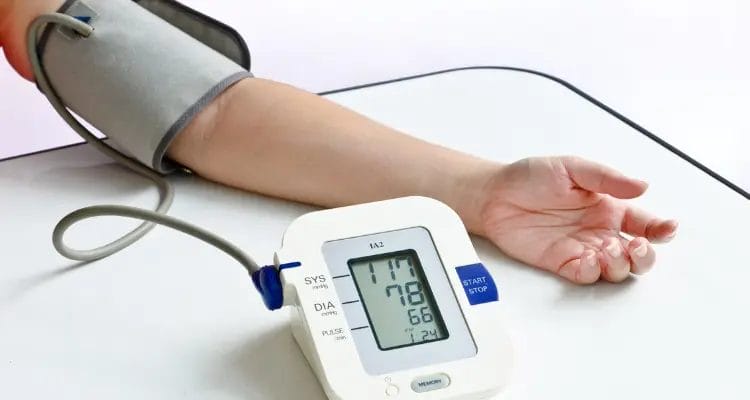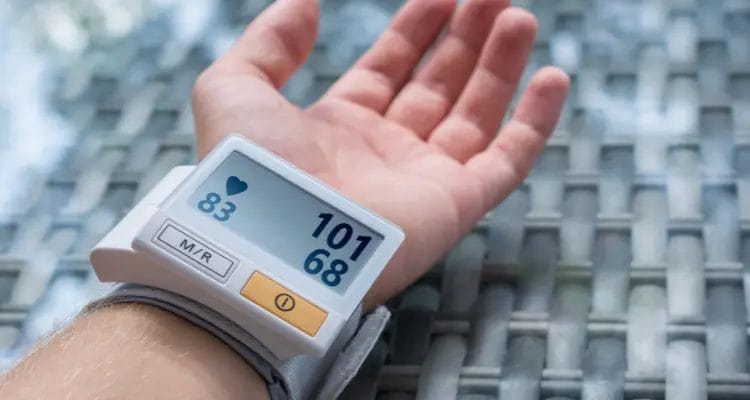It seems like everyone is talking about coconut water these days. Coconut water has become quite popular lately because of its health benefits, such as lowering blood pressure. Some studies even suggest that drinking coconut water reduces cholesterol levels. In addition, it contains electrolytes and minerals that give the beverage a refreshing taste. Many people also enjoy drinking it straight out of the shell. But does it lower blood pressure? And how much coconut water should you drink to lower blood pressure? This article will guide you about how coconut water helps lower blood pressure.

Blood Pressure
Blood pressure means the force your heart exerts against artery walls when it contracts. So, an average reading would be 120/80 or below for systolic (upper) and 80/60 or below for diastolic (lower).
Is high blood pressure dangerous?
Yes. When your blood pressure remains too high, it puts extra strain on your blood vessels and other organs, such as the heart, the brain, kidneys, and eyes. Persistent high blood pressure can increase your risk of several potentially life-threatening health conditions, such as heart disease, heart attack, strokes, kidney failure, and other serious health problems.
Does drinking Coconut water reduce blood pressure?
Yes, it does. Coconut water can help lower blood pressure in people with hypertension. For example, one study found that drinking coconut water for 12 weeks lowered diastolic blood pressure by an average of 5 mmHg and systolic blood pressure by an average of 7 mmHg.

How does coconut water help lower blood pressure?
1. Coconut water contains a type of saturated fat known as lauric acid, which helps to raise levels of HDL (good) cholesterol and improve heart health. In addition, lauric acid helps lower blood pressure by reducing inflammation and improving blood vessel function.
2. It can help lower blood pressure by reducing the amount of sodium in your
blood. In addition, coconut water is one of the most significant sources of
potassium and magnesium, which can help reduce the amount of sodium in your
blood.
3. It is rich in potassium, which helps to regulate blood pressure.
4. It also contains magnesium, which helps to help lower blood pressure.
5. It is a good source of electrolytes, essential for maintaining proper fluid balance and preventing dehydration, which can contribute to high blood pressure.

How much is coconut water needed to drink to lower blood pressure?
Most studies suggest drinking at least 2-3 cups (16-24 ounces) of coconut water daily to see the benefits. However, drink at least 8 ounces of coconut water daily for the best results. You can drink it all at once or spread it throughout the day. But some people may need to drink more depending on their needs. For example, if you drink it for its blood pressure-lowering effects, drink it regularly and consistently for the best results. Before adding coconut water to your diet, it is essential to consult your doctor if you take any medication for high blood pressure, as it may interact with some medicines.

Best Time to Drink Coconut Water for High Blood Pressure
It is best to drink coconut water fresh, as it can lose some nutrients when processed. You can find fresh coconut water at many health stores or online. If you cannot find fresh coconut water, you can buy it in cans or cartons. Make sure to check the label so that you are getting 100% pure coconut water with no added sugar or any other ingredients.
Also, the best time to consume coconut water is in the morning, on an empty stomach first thing; it helps your body absorb all nutrients and electrolytes more
efficiently.
Other health benefits of drinking coconut water
1. Coconut water has natural electrolytes, which can help hydrate and replenish your body after exercise.
2. It is also a great source of potassium, essential for maintaining healthy blood pressure levels.
3. It has been shown to improve cardiovascular health by reducing bad cholesterol and increasing good cholesterol levels.
4. It can also help to boost your immune system due to its high
the concentration of antioxidants and vitamins C and E.
5. Drinking coconut water every day can also help prevent kidney stones from
forming due to their diuretic properties.
6. Coconut water can also improve your brain health.
7. It is a low-calorie beverage. A typical serving of coconut water
It contains only 46 calories, making it an excellent choice for people trying to lose or maintain a healthy weight.
8. It is fat-free and cholesterol-free. It also contains no sodium or
added sugars, making it a healthy choice for people with diabetes or other
conditions.
9. It can help improve digestion and regularity.
10. It is a good source of antioxidants and vitamins that can boost overall health.

How to include coconut water in your daily routine?
Some great ways to incorporate coconut water into your diet are:
1. You can drink it straight up.
2. Add it to your smoothies.
3. For a refreshing summertime treat, you can try adding mango, pineapple, and
banana to your blender, along with coconut water.
4. You can add it to oatmeal or yogurt to boost flavor and nutrients.
5. Use it in place of plain water when cooking rice or quinoa.
6. Make homemade popsicles by freezing coconut water with fresh juice or pureed
fruit.
7. Turn it into ice cubes.
8. Mix it into your salad dressing.

How to Choose the Best Coconut Water
There are two types of coconut: young coconuts and mature coconuts. Young coconuts have more water and less flesh, while mature coconuts have less water.
When choosing coconut water, you should look for one that is clear and has no sediment. In addition, the color of the coconut water should be light yellow or greenish-yellow.
Side effects of drinking too much Coconut Water:
There are a few side effects to drinking too much coconut water. Such as:
1. Drinking too much coconut water can cause an upset stomach, including
bloating, gas, and diarrhea.
2. It can cause high potassium levels in the blood.
3. People with diabetes should be aware that coconut water contains natural sugars
that may affect blood sugar levels.

What are some other ways to lower blood pressure?
There are some other ways to lower blood pressure. Such as:
Cutting back on sodium:
One of the best ways to lower blood pressure is to reduce sodium. The American Heart Association recommends no more than 2,300 mg of sodium per day for people with high blood pressure. That’s about one teaspoon of salt.
Eating a healthy diet:
A diet rich in whole grains, vegetables, low-fat dairy, and fruits can also
help lower blood pressure. These “heart-healthy” foods are good for
your overall health and can help reduce heart disease and stroke risk.
Exercise:
Regular exercise is one of the most significant ways to keep your blood pressure in
check. Physical activity can make your heart more substantial and more
efficient at pumping blood. It also can help you maintain a healthy weight,
lowering your risk of high blood pressure.
Medication:
If lifestyle changes alone aren’t enough to lower your blood pressure, your doctor may also prescribe medication. Different drugs are available to treat high blood pressure, including diuretics, ACE inhibitors, beta-blockers, and calcium channel blockers.
Facts:
1. Drinking coconut water can reduce the chances of getting a urinary tract infection.
2. Potassium can reduce the chances of stroke and prevent early death in women.
3. You should not take coconut water instead of cholesterol-lowering medications.
Frequently Asked Questions:
Can I drink three coconut water every day?
Is coconut water good for the kidneys?
Does coconut water interact with medications?
Does coconut water increase cholesterol?
Is it OK to drink coconut water at night?
Is coconut water good for arthritis?
Is coconut water anti-inflammatory?
Is coconut water good for your liver?
Can people with diabetes drink coconut water?
Does coconut water make you urinate more?
Conclusion:
Coconut water is an excellent option if you’re looking for natural ways to lower your blood pressure. It’s low in calories, contains potassium and magnesium, and is an excellent source of hydration. Which can help keep your heart healthy and improve your overall health.
We hope you’ve enjoyed our article and found it helpful.






